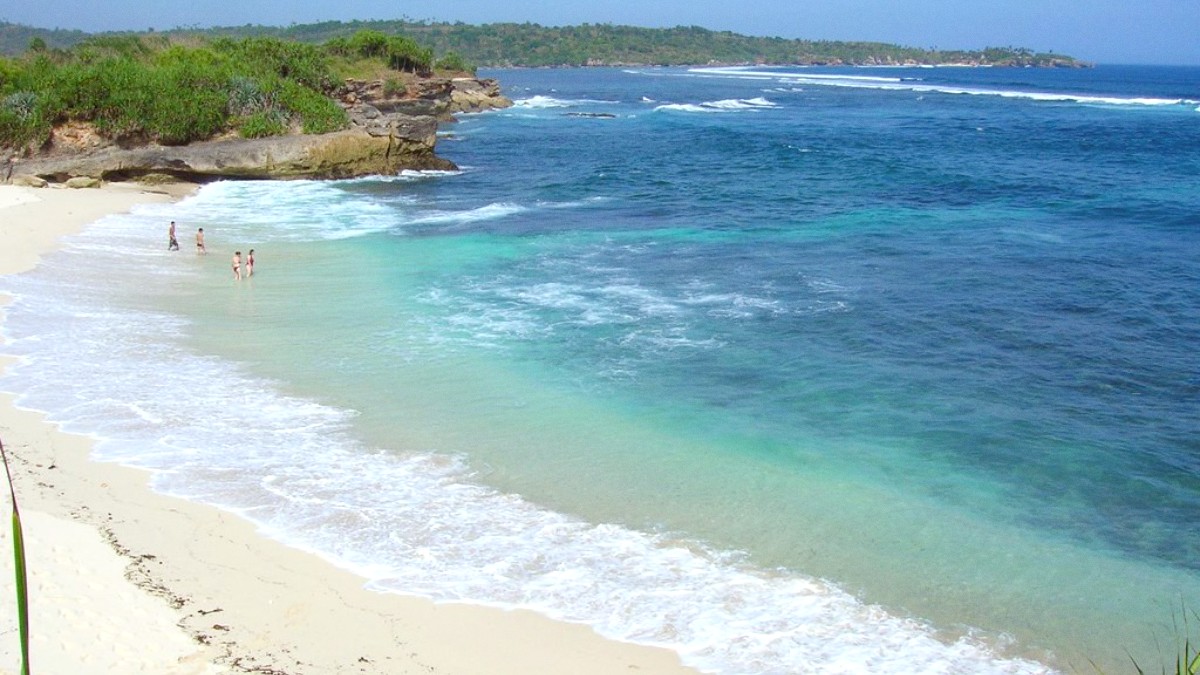
Bali, Indonesia
The island's climate brings consistent warmth, rarely dipping below 25°C (77°F). Dry Season (April to October) brings the most favorable weather for tourism. Temperatures average 26-30°C (79-86°F). Precipitation remains low, with clear, sunny skies dominating most days. Humidity levels stay relatively lower, making the air feel more comfortable. Ocean conditions generally hold calm and clear, excellent for water activities.
Wet Season (November to March) sees temperatures average 27-32°C (81-90°F). While rainfall runs higher, it often comes in short, heavy bursts, typically in the afternoon or overnight. This means you can still enjoy sunny mornings and clear evenings. Humidity levels increase, contributing to a more humid feel. The landscape becomes lusher and greener during this time due to the rain.
Nusa Lembongan typically experiences no hurricanes. The wet season brings monsoon rains, generally not continuous. They often occur in the afternoon or overnight, permitting ample daytime activity. Temperatures remain consistently warm year-round, so extreme cold holds no concern. Ocean breezes mitigate extreme heat, though midday sun can appear intense. Always plan for humidity, especially during the wet season.
July, August, December, January
Optimal weather, minimal rain, abundant sunshine. Excellent ocean conditions. Island buzzes with energy, lively atmosphere.
Higher accommodation prices (20-50% more). Crowded attractions and beaches. Fast boat services frequently book out. Restaurants and popular spots fill quickly.
April-June, September-November
Weather remains good, plenty of sunshine, comfortable temperatures. Fewer crowds for a more relaxed experience. Better value accommodation and activity prices. Water sports conditions hold excellent.
Occasional rain showers might occur towards the end (October/November), transitioning into wet season. These typically run brief.
February, March
Lowest prices for accommodation and tours, fitting for budget-conscious travelers. Very few tourists, peaceful, uncrowded environment.
Highest chance of rain, more frequent and sometimes longer downpours. Some smaller businesses may reduce hours or close. Ocean conditions can be choppier, visibility for diving/snorkeling may reduce.
The dry season (April-September) offers consistent swells, specifically for popular breaks like Playgrounds, Lacerations, and Shipwrecks. Waves generally appear cleaner and more predictable during this period. For diving and snorkeling, the dry season (April-October) yields the best visibility and calmest conditions.
Manta ray sightings happen year-round, but chances for seeing the elusive Mola Mola (ocean sunfish) are highest from July to October, when cooler, nutrient-rich waters prevail. All year presents opportunities for beach relaxation. The dry season brings more reliable sunshine for sunbathing, while the wet season has quieter beaches.
Dry season (April-September) for consistent swells.
Dry season (April-October) for best visibility. Mola Mola: July-October.
All year, dry season for reliable sun, wet season for quiet.
Dry season for easier scooter navigation; unpaved roads can turn muddy after rain.
Shoulder seasons (April-June, September-November) unite the best aspects without extremes.
These requirements can change, so always consult the latest information from the Indonesian Ministry of Foreign Affairs or your country's embassy before travel.
Indonesia extends several visa options for tourists:
Assemble the necessary documents to avoid arrival delays.
Costs reflect your travel style. Here is a general guide:
These are general ranges; prices vary by season, location, and specific vendors.
Nusa Lembongan typically presents as a safe destination, but awareness and preparation aid in managing potential risks.
Travel insurance sees high recommendation for any Nusa Lembongan trip. Your policy should cover: Medical emergencies and evacuation (this is main), trip cancellation or interruption (covers non-refundable expenses if your trip halts or shortens due to unforeseen circumstances), loss or theft of belongings (guards against luggage, passport, and valuables loss or theft), adventure activities (confirm policy covers specific activities like diving or surfing).
Consider reputable providers specializing in travel insurance.
No vaccinations hold requirement for entry for general tourism, unless from a yellow fever endemic area. Consult a travel health clinic or doctor for personalized counsel at least 4-6 weeks prior to travel.
Routine vaccinations (MMR, DTP, Varicella, Polio) current status is good.
Hepatitis A & B, Typhoid, Rabies, Japanese Encephalitis may see recommendation depending on travel plans.
Traveler's Diarrhea: A common issue. Drink only bottled or purified water. Avoid ice cubes in drinks unless certain they come from filtered water. Wash hands frequently or use Hand sanitizer. A Compact first aid kit with Anti-diarrhea medication (e.g., Imodium or Loperamide) and rehydration salts offers utility.
Mosquito-borne illnesses (Dengue fever): Dengue fever occurs in Indonesia. Use Insect repellent containing DEET or picaridin, especially at dawn and dusk. Long sleeves and pants suffice during these times.
Sunburn and Heatstroke: Tropical sun appears intense. Use high-SPF, Reef-safe sunscreen frequently. Don a Wide-brimmed hat and Sunglasses. Stay hydrated. Seek shade during peak sun hours.
Cuts/Scrapes from coral: Wear Water shoes or Reef shoes near coral for foot protection. Clean any wounds immediately with antiseptic. Motorbike accidents: Scooters popular, but accidents occur due to challenging roads. Always don a Helmet. Drive slowly and defensively. Roads can be narrow, unpaved, steep, and potholed.
Drinking Water: Tap water holds no safe drinking status. Always use Bottled water. Many accommodations offer water refill stations. A Portable water filter bottle presents a sustainable alternative.
Crime: Nusa Lembongan typically is a very safe status with low crime rates. Petty theft can occur. Secure belongings at all times. Avoid walking alone in poorly lit areas after dark.
| Category | Information | Notes |
|---|---|---|
| Medical Clinics | Several small clinics (e.g., Lembongan Clinic, Nusa Medical Centre) for minor issues. | For serious emergencies, evacuation to Bali is necessary. |
| Hospitals in Bali | Reputable international-standard hospitals (BIMC Nusa Dua, Siloam Denpasar, Sanglah General Hospital). | Bali offers comprehensive care for complex medical issues. |
| Emergency Services | Dial 112 for general emergencies (police, ambulance). Police: 110. Medical Emergency: 118 or 119. Search and Rescue (BASARNAS): 115. | Keep these numbers readily available. Should an emergency occur, stay calm. Contact the relevant emergency service. Then, contact your travel insurance provider promptly to report the incident and seek assistance. |